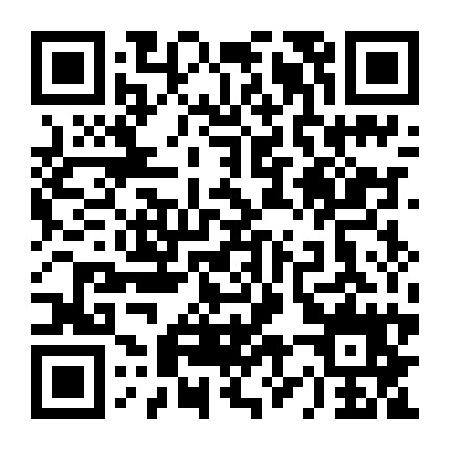American urbanization and industrialization continued to accelerate between World War I and the 1970’s, with only a temporary slump in the depression era. Demand for iron, steel, coal, oil, gas, water, and food rocked ahead during these years, stimulated particularly by the economic growth associated with World War II. By the 1970’s the industrial might of the United States was an overpowering national and global reality. With six percent of the world’s people, it consumes annually some thirty-five percent of the world’s available resources, while generating proportionate burdens of harmful wastes. While Americans have been proud of their technical and industrial preeminence, it was only in the 1950’s that persuasive environmental thinking began to remind them that being an economic superpower is a mixed blessing with profound ecological consequences.
11. The Americans have always believed that the United States __________.
A. has the largest land area in the world
B. enjoys inexhaustible resources
C. is a democracy that is celebrated by other countries
D. will develop a conservation movement before the prodding of professional resource managers and politicians
12. Progress in environmental protection in the United States would not have been possible if it had not been for __________.
A. the commitments of key professionals and politicians
B. hard evidences of environmental degradation
C. the prevalent political ideology
D. all the above
13. The author’s attitude towards environmental laws and regulations in the United States is __________.
A. critical B. misleading
C. positive D. neutral
14. In paragraph 3, the author tries to account for __________ in the United States.
A. the decline of progressivism
B. continued technological and economic advances
C. worsening ecological conditions
D. the contributions of resources in industrial growth
15. The last sentence of the passage means that __________.
A. economic progress has taken a serious toll on ecology in the United States
B. the economic status of the United States is a blessing
C. the Americans should be reminded of the need to protect nature
D. the United States needs to conduct profound ecological research
Passage 2
16-20
Section B
In the following article some paragraphs/sentences have been removed. For Questions 21-25, choose the most suitable paragraph/sentence from the list A-E to fit into each of the numbered gaps. Write your answers on Answer Sheet.
Well in advance of Calvin’s entry into his vocation as a reformer of the church in Geneva and Strasbourg, the sixteenth century had already displayed a remarkable preoccupation with biblical interpretation and, as a consequence, an unprecedented eruption of exegetical publications. 21) ______
To begin with, the medium of intellectual exchange was forever altered by the dissemination of the printing press throughout Europe. As the costs of printing fell, books ceased to be a luxury item. Coupled to the growth of printing was a rising tide of scholarship that both consumed and produced those books. The humanists cry: Ad fontes— “back to the sources”— fueled scholars’ appetites for these same sources as they emerged from the presses. 22) ______ For example, if these burgeoning sources, editions, and tools reminded scholars and preachers that there were new discoveries to be made in their old Bibles, Erasmus’ early textual criticism of the New Testment Undermined the magisterium of the Latin Vulgate and warned his readers they could not take even the wording of the Bible for granted, much less its theological content.
To these technological developments and philological discoveries, one should add other factors more unsettling still. Most notable of these was the climate of discontent within medieval Catholicism. Here was abundant tinder, for which Martin Luther was but a spark. The religious mood in Europe ranged between cynicism and anxiety, and ran not infrequently to the occult or the apocalyptic. 23) _______ All in All, it is easy to see why early reformers (and, in response, their Catholic opponents) found preaching and writing was not a diversion from the cares of the world, nor a mere antiquarianism. It instead served the defense of the gospel, the salvation of souls, and it was a matter of life and death. Virtually every aspect of daily life – not just preaching and sacraments, but also marriage and divorce, family life, commerce and consumption, as well as politics on every scale – was charged with theological and thus exegetical implications. 24) _______
Calvin entered this context not in the first wave but in the second, and even somewhat accidentally. His desire was not to be a reformer or even to be much in the public eye, but rather to live the quiet and secluded life of a humanist scholar – or so he tells us in the 1557 preface to his commentary on the Psalm. Calvin would have been exposed to humanist teachings and values throughout his years of academic preparation, beginning with his studies in the early 1520s at the College of de la Marche with Mathurin Cordier and continuing until he fled Paris in 1533, during which time he studied, by turns, theology and law in Paris, Orleans, and Bourges. 25) _______ Calvin’s self-published commentary on Seneca’s De Clementia (1532) is a case in point, showcasing his mastery of ancient writers; his interest in history, philology, and textual criticism; his careful scrutiny of the text for the author’s intended meaning; and his concern that eloquence be marshaled in the service of what could fairly be called an Erasmian moralism. These are many of the characteristics that what mark his later work as a biblical scholar.

通用考博英语精品课程【节选】-1元领!
摸清考试命脉,有技巧有方法有准备地进入到考博英语中。

 资料下载
资料下载
【必看】考博英语词汇10000例精解
发布时间:2020-09-02关注新东方在线服务号
回复【10000】免费获取
医学考博英语作文核心基础词汇整理
发布时间:2020-04-15关注新东方在线服务号
回复【医学考博】获取
医学考博英语阅读理解练习资料
发布时间:2020-04-15关注新东方在线服务号
回复【医学考博】获取
法学考博英语高频词汇word版
发布时间:2020-04-15关注新东方在线服务号
回复【医学考博】获取
医学博士英语统考真题及解析
发布时间:2019-12-26关注新东方在线服务号
回复【考博真题】获取
全国医学博士外语统一考试真题
发布时间:2019-12-26关注新东方在线服务号
回复【考博真题】获取
中科院考博英语复习备考实战经验分享
发布时间:2019-12-26关注新东方在线服务号
回复【考博经验】获取
中科院考博英语真题练习资料
发布时间:2019-12-26关注新东方在线服务号
回复【考博真题】获取

关注新东方在线服务号
关注新东方在线服务号,
免费获取考博必看干货资料

 推荐阅读
推荐阅读
2021考博英语作文词句素材:环保类话题常见词汇
2021考博英语作文词句素材:同义替换之名词篇
2021考博英语作文词句素材:同义替换之动词篇
2021考博英语作文词句素材:词义辨析
2021考博英语作文词句素材:倍数的表达


 考博好课推荐
考博好课推荐
1节课解读博士考试,掌握备考秘诀!
价格 : ¥0元
基础薄弱,备考迷茫,送纸质资料
价格 : ¥2280元
资深教师,教学简明,直接有效!
价格 : 0元
 资料下载
资料下载
关注新东方在线服务号
回复【10000】免费获取
关注新东方在线服务号
回复【医学考博】获取
关注新东方在线服务号
回复【医学考博】获取
关注新东方在线服务号
回复【医学考博】获取
关注新东方在线服务号
回复【考博真题】获取
关注新东方在线服务号
回复【考博真题】获取
关注新东方在线服务号
回复【考博经验】获取
关注新东方在线服务号
回复【考博真题】获取

 阅读排行榜
阅读排行榜
 相关内容
相关内容